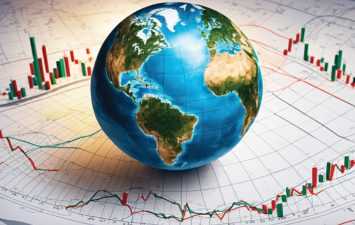The global economic landscape refers to the state and trends of economic development worldwide, including national economic growth rates, inflation levels, and international trade conditions.
This landscape has a profound impact on investment.
Against the backdrop of the current volatile international landscape, multiple factors, including politics, economics, and geopolitical conflict, are increasingly impacting investment returns. Investors who lack a deep understanding of the international landscape can easily fall into the trap of "high risk, low return." Therefore, a correct understanding of the impact of the international landscape on overseas investment is essential for every investor interested in a global strategy.

The impact of the international landscape on overseas investment is becoming increasingly significant
- Geopolitical Conflicts Increase Investment Uncertainty
In recent years, geopolitical conflicts have erupted in many parts of the world, such as the Russia-Ukraine War and tensions in the Middle East, directly leading to significant volatility in the capital markets of these regions. Investors who fail to conduct risk assessments and asset allocation before conflicts erupt often face significant losses. Furthermore, wars and conflicts can lead to supply chain disruptions, energy price fluctuations, and other issues, indirectly impacting global economic trends.
- Great Power Competition Reshapes the Global Economic Landscape
Competitions between major powers, such as those between China and the United States and China and Europe, are profoundly impacting global trade, technology, and finance. For example, US sanctions on Chinese high-tech companies have hindered their overseas listings and financing, directly impacting investors' return expectations. At the same time, the global industrial chain is undergoing rapid restructuring. Some countries are attracting foreign investment through subsidies and tax incentives, but this has also increased the complexity of the investment environment.
- Frequent policy changes impact investment stability.
Governments around the world frequently adjust their foreign investment policies, tax policies, and even industry regulatory policies for domestic political and economic reasons. For example, emerging market countries such as India and Indonesia have repeatedly adjusted their foreign investment access rules in recent years, posing significant challenges to foreign companies. Policy uncertainty is often a major factor in overseas investment failures.

Different types of investments are affected differently by international developments
- Stock market volatility is the most sensitive.
Overseas stock markets are directly affected by changes in the international situation, particularly those closely linked to geopolitics, energy prices, and monetary policy. For example, the Federal Reserve's interest rate hike cycles often lead to global capital flowing back to the United States, while emerging market stocks face capital outflows and sharp declines in stock prices.
- Real estate investment is constrained by both policy and economic conditions.
Overseas real estate investment may appear stable, but it also faces multiple risks, including policy changes, exchange rate fluctuations, and local economic recessions. For example, countries like Australia and Canada have implemented policies restricting foreign home purchases, cooling the market. Furthermore, the post-pandemic bursting of real estate bubbles in some countries has also caused losses for investors.
- Infrastructure investment cycles are long, returns are slow, and risks are more hidden.
Overseas infrastructure investment typically involves government cooperation, long-term contracts, and legal safeguards. Deteriorating international relations or political instability in the host country can lead to project stagnation or even failure. For example, some countries along the Belt and Road Initiative have suspended or renegotiated project terms due to sovereign debt issues, creating significant uncertainty for investors.
